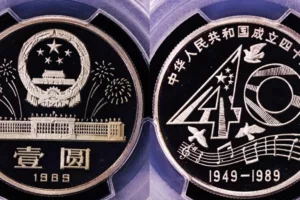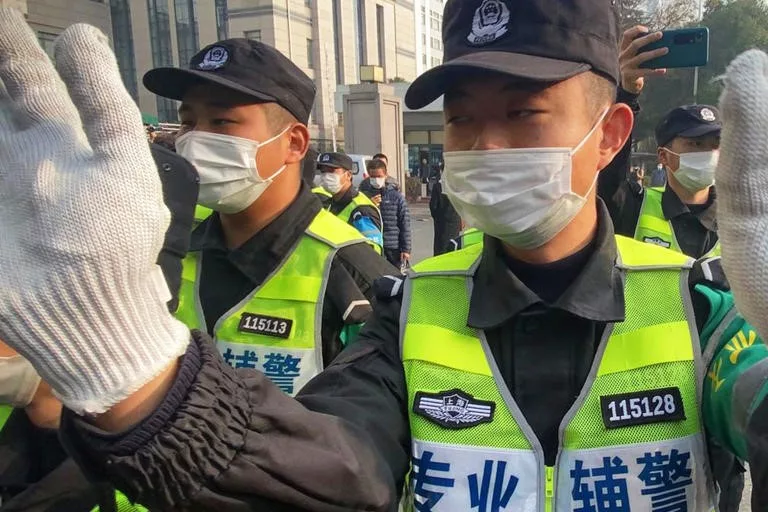Everyday Actions That Are Crimes in China© Provided by Gangnamtimes
Story by Robin Seo Editor • Wednesday
① Social Media Usage is Considered a Crime

shihegang© Provided by Gangnamtimes
Laws exist to create a safe society, but some regulations may require more work to comprehend due to cultural and lifestyle differences between countries. China also has some unique and shocking legal regulations. Today, let’s explore everyday situations but consider crimes in China.
Popular social media platforms such as Instagram, Facebook, and YouTube are prohibited in China. China is known for having the most stringent internet censorship in the world. They only allow the use of domestic apps like WeChat and Weibo.
This is due to China’s notorious internet surveillance system. The government blocks or restricts access to foreign websites to block the circulation of information that could hinder social control. Major international news sites are also blocked in China due to the possibility of unfavorable external information entering the country. This internet censorship system is famously called the “Great Firewall of China.”

SBS© Provided by Gangnamtimes
As a result, accessing foreign websites or apps in China requires using a Virtual Private Network (VPN) to bypass censorship. However, even using VPNs has become challenging as the Chinese government announced a ban on VPN usage and strengthened internet regulation.
Some Chinese netizens manage to bypass the Great Firewall using VPNs. Consequently, they have used social media to post content about protests against China’s “Zero COVID” policy. They criticize the oppressive internet censorship, which they liken to an “Electronic Prison Wall” or “China Communist Party’s Internet Berlin Wall.”
Related video: Missing China’s FM Ousted In Shake-up Days After ‘Extramarital’ Drama Unfolds (Times Now)
WION Chinese government unveils plans to revive consumption
② Unique Laws in China

Sohu© Provided by Gangnamtimes
In October 1949, the Chinese Communist Party established the People’s Republic of China as a socialist regime. Before that, China was under the governance of the Kuomintang regime, led by Chiang Kai-shek. Afterward, China consolidated the influence of the remaining Kuomintang forces on the mainland.
As part of this policy, the prohibition of exporting all pre-1949 coins was enacted. Exporting coins is considered a criminal act and is punishable by a fine. Furthermore, modifying coins, considered “lucky tokens,” for sale as decorations is also forbidden in China.

Weibo© Provided by Gangnamtimes
Recently, car decorations have become popular among young car owners in China. They can easily purchase stickers and other car accessories online to add a personal touch to their vehicles.
However, it is considered illegal if stickers cover more than 30% of the vehicle’s surface area in China. Unaware of this, some car owners tried to personalize their cars but were fined by traffic police. In some cases, they can receive up to three penalty points and a fine of up to 86,000 yuan.
③ Who Comes First: Mom or Girlfriend?

Sina© Provided by Gangnamtimes
There is a question that every man has probably heard or pondered at least once: “If your girlfriend and mother were both drowning, who would you save first?” Surprisingly, Chinese law provides a clear answer to this question.
2015 a related question was included in the first round of China’s judicial examination. The answer “Rescue your mother first; otherwise, it is considered an act of negligence” was deemed the correct response. According to Chinese law regarding the “rights and obligations between parents and children,” children have a “duty” to protect and care for their parents. Since pre-marital relationships have no legal obligation, saving the girlfriend first would be considered criminal.
However, the Chinese legal community pointed out that the obligation to rescue family members first is not specified in the law, and thus, choosing to save the mother first cannot be considered the definitive answer.
Today, we have learned about some unique laws and regulations in China that may be difficult for us to understand. Each country has its cultural differences, and some parts may not be easily understandable. The regulations we have introduced today are legally defined in China, but their applicability may vary depending on the situation. Considering the existence of cultural differences, knowing these points as a reference when visiting a foreign country could be helpful.



